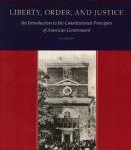When British troops began to advance toward the United States’ new capital of Washington in the summer of 1814, it was clear that government leaders had not prepared an adequate defense for the city and its government buildings. Upon seeing the British advancing toward Washington, Secretary of State James Monroe, dispatched a note to President James Madison. It said that the British were pushing toward the capital, American troops were retreating – and they were outnumbered. “The enemy are in full march for Washington. Have the materials prepared to destroy the bridges,” Monroe wrote. And in a significant postscript, he added: “You had better remove the records.”
Monroe’s message set off a scramble among government officials to round up all the records they could. The British surely would burn them if they reached the capital. And so clerks packed such things as the books and papers of the State Department; unpublished secret journals of Congress; George Washington’s commission and correspondence; the Articles of Confederation; papers of the Continental Congress; and all the treaties, laws, and correspondence dating back to 1789. Along with these early records, the clerks also bagged up the Charters of Freedom – the collective term for the Declaration of Independence, the Constitution, and the Bill of Rights. And so these three documents began a long journey as the War of 1812 raged. The journey would not end until 1952, when all three were placed together, side by side, in special encasements in the Rotunda of the National Archives Building in Washington, D.C.
From: Kratz, Jessie. “P.S.: You Had Better Remove the Records: Early Federal Archives and the Burning of Washington during the War of 1812.” Prologue 46.2 (2014)36-44. Continue reading Jessie Kratz’s article in Prologue magazine about the numerous and perilous relocations of the Charters of Freedom. Print issues of Prologue magazine can be found in the Government Documents Collection on the bottom floor of the James B. Duke Library.
September 17 is designated as Constitution Day to commemorate the signing of the U.S. Constitution in Philadelphia on September 17, 1787.
There are hundreds of books relating to the subject of the Constitution which you may borrow from the library. Many electronic books and streaming videos are included in the online catalog as well. Listed below are just a few of the titles to be found:
 The Constitution of the United States : with index and the Declaration of Independence / printed under the direction of the Joint Committee on Printing
The Constitution of the United States : with index and the Declaration of Independence / printed under the direction of the Joint Committee on Printing
Liberty, order, and justice : an introduction to the constitutional principles of American government / James McClellan
 The genius of America : how the Constitution saved our country–and why it can again / Eric Lane and Michael Oreskes
The genius of America : how the Constitution saved our country–and why it can again / Eric Lane and Michael Oreskes
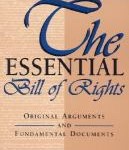 The essential Bill of Rights : original arguments and fundamental documents / edited by Gordon Lloyd, Margie Lloyd
The essential Bill of Rights : original arguments and fundamental documents / edited by Gordon Lloyd, Margie Lloyd
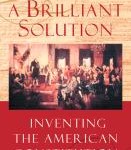 A brilliant solution: inventing the American Constitution/Carol Berkin
A brilliant solution: inventing the American Constitution/Carol Berkin
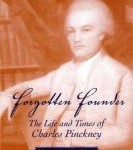 Forgotten founder : the life and times of Charles Pinckney / Marty D. Matthews
Forgotten founder : the life and times of Charles Pinckney / Marty D. Matthews
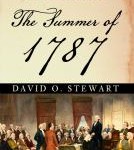 The summer of 1787 : the men who invented the Constitution / David O. Stewart
The summer of 1787 : the men who invented the Constitution / David O. Stewart
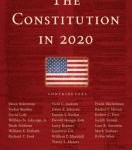 The Constitution in 2020 / edited by Jack M. Balkin, Reva B. Siegel
The Constitution in 2020 / edited by Jack M. Balkin, Reva B. Siegel
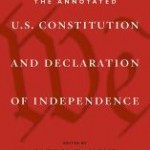 The Annotated U.S. Constitution and Declaration of Independence / edited by Jack N. Rakove
The Annotated U.S. Constitution and Declaration of Independence / edited by Jack N. Rakove

